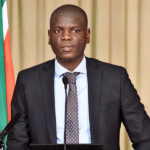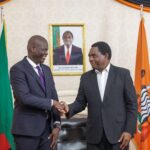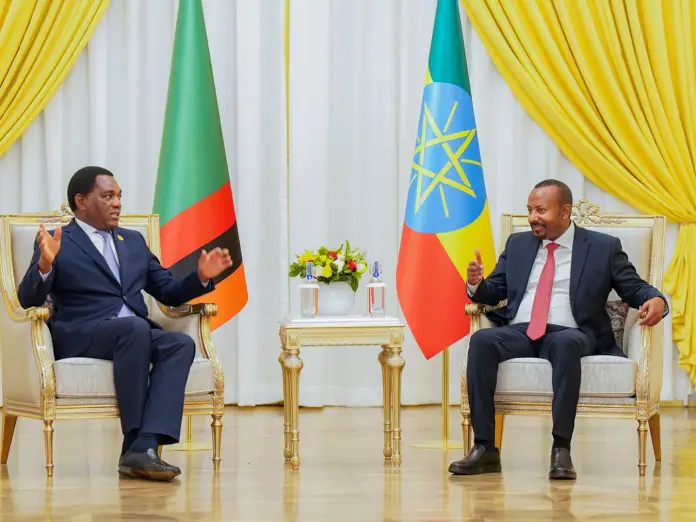The recent walkout by United Party for National Development (UPND) Members of Parliament (MPs) during a parliamentary debate on the high cost of living has ignited widespread discussion across Zambia. While critics have labeled it an avoidance tactic, supporters view it as a bold statement prioritizing citizens’ needs over political maneuvering. To fully grasp the implications of this move, it is necessary to examine the motivations behind the walkout, the economic challenges inherited from the previous administration, and the UPND government’s ongoing efforts to stabilize the economy.
The Walkout: A Protest or Political Evasion?
The walkout has been interpreted in different ways. Some see it as an act of solidarity with Zambians facing economic hardship, while others argue it was a refusal to engage in what was perceived as a politically charged debate. The motion urging the government to address the rising cost of living was introduced by Patriotic Front (PF) MP Mutotwe Kafwaya. However, UPND MPs contended that the debate was being used as a political tool rather than as a constructive discussion on economic solutions.
UPND MPs viewed their walkout as a protest against the perceived insincerity of the opposition’s approach to the economic crisis. By abstaining from a debate they considered politically motivated, they sought to highlight the need for genuine, solution-oriented discussions. However, the move also raised concerns about leadership accountability, particularly regarding the Chief Whip, whose decision to lead the walkout has faced scrutiny. Some voices within the party and public have called for the Chief Whip’s removal to reinforce the government’s commitment to accountability and responsible governance.
Legacy of the Previous PF Administration
The economic challenges Zambia faces today are deeply rooted in the legacy of the previous PF government. Widespread corruption, financial mismanagement, and reckless infrastructure spending severely destabilized the economy. Key issues included:
- Rampant Corruption: Government officials frequently engaged in corrupt practices with impunity, diverting resources away from essential services and eroding public trust.
- Mismanagement of Public Funds: Financial scandals and irresponsible procurement drained national resources, leading to inefficiencies in key sectors.
- Inflated Infrastructure Costs: Many projects were characterized by exorbitant costs and financial mismanagement, further burdening the national economy.
These systemic failures left the UPND administration grappling with a struggling economy, exacerbated by external factors such as global inflation and supply chain disruptions. Rising fuel prices and high mealie meal costs are among the direct consequences of these past missteps.
UPND Government’s Economic Response
Since assuming office, the UPND government has implemented several initiatives aimed at stabilizing the economy and fostering sustainable growth:
- IMF Support and Fiscal Discipline: The government has sought assistance from the International Monetary Fund (IMF) to restore fiscal discipline, restructure debt, and implement economic reforms.
- Debt Restructuring Efforts: UPND has engaged in negotiations to restructure the country’s debt, inherited from the PF administration, to ease financial pressures and promote economic growth.
- Empowerment Through Constituency Development Fund (CDF): The revitalization of the CDF has enabled local communities to undertake developmental projects. Notable successes include infrastructure improvements at Mbinga Primary School in Chadiza District and economic empowerment programs such as the Chizombo Women’s Club in Zambezi District.
- Stabilizing Fuel Prices and Agricultural Support: The government has introduced measures to stabilize fuel prices while increasing subsidies and fertilizer distribution to farmers. These efforts aim to boost food production and ultimately lower mealie meal costs.
The Need for Constructive Opposition and Bipartisan Cooperation
While the opposition plays a critical role in holding the government accountable, its approach has often been criticized for focusing on political point-scoring rather than contributing to meaningful solutions. The UPND walkout can be seen as a reaction to this, but it also underscores the need for bipartisan cooperation in addressing Zambia’s pressing economic challenges.
The high cost of living affects all citizens, and tackling it requires a collective effort beyond partisan politics. Tangible economic strategies, expanded social protection programs, and improved public communication are essential in ensuring that government interventions effectively reach and benefit the populace.
Conclusion: A Call for National Unity in Economic Recovery
The UPND government’s parliamentary walkout, while controversial, signals its commitment to prioritizing effective governance over political theatrics. The economic hardships facing Zambia today stem from years of mismanagement and corruption, but the current administration is implementing decisive measures to address these issues. Through transparency, strategic economic reforms, and community-driven development, Zambia is on a path toward recovery and stability.
However, meaningful change requires a unified effort from all stakeholders—government, opposition, civil society, and ordinary citizens. By fostering constructive dialogue and focusing on solutions rather than blame, Zambia can navigate its economic challenges and build a prosperous future for all. As the late Presidents Levy Mwanawasa and Frederick Chiluba once asked, “Are we ready to sacrifice?” The answer lies in our collective willingness to work together towards economic stability and growth.






